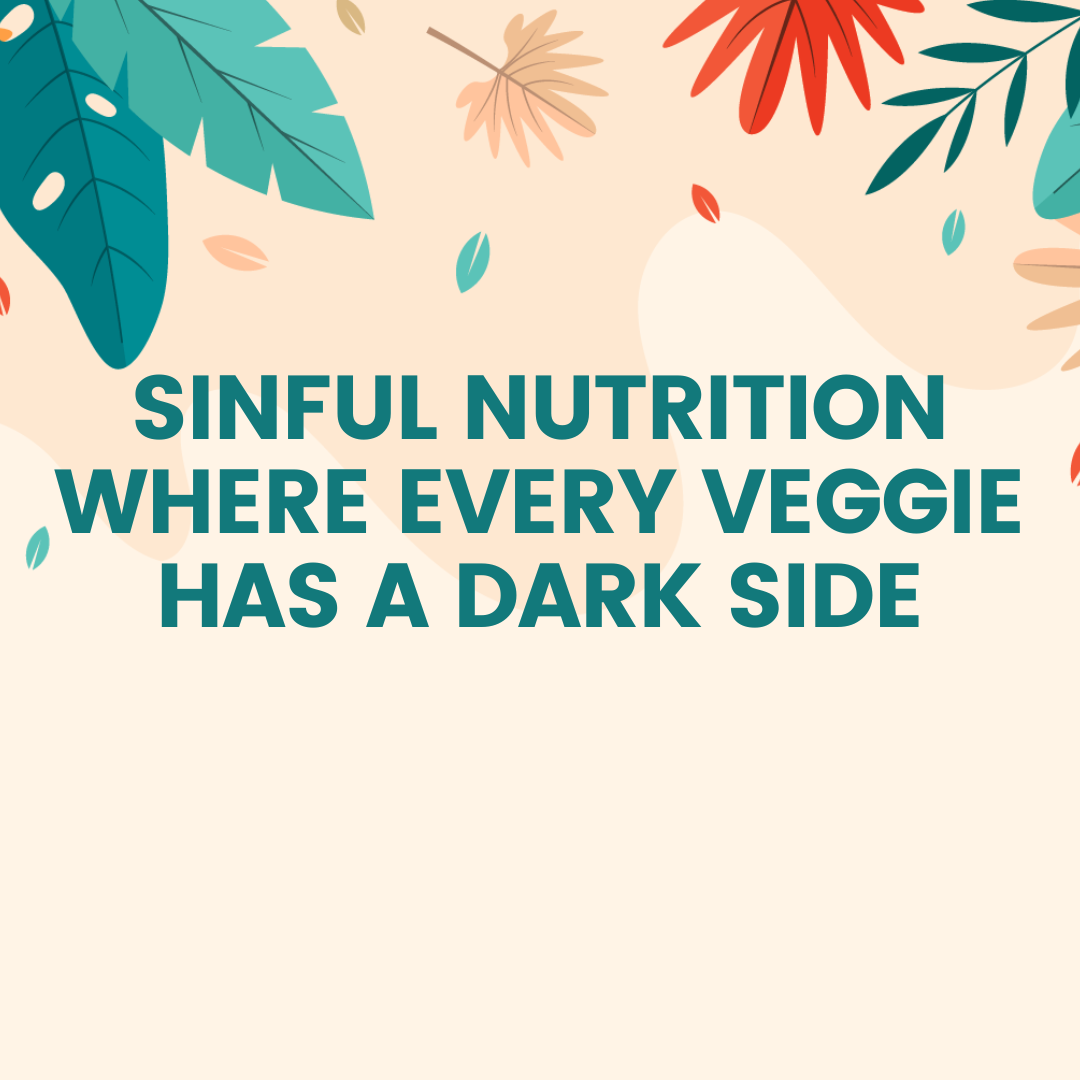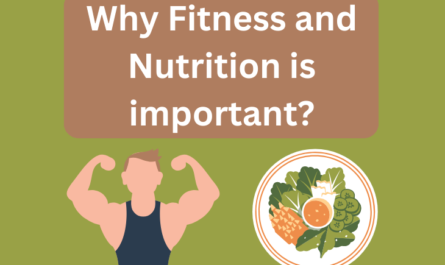Sinful nutrition where every veggie has a dark side
When it comes to nutrition, vegetables are often touted as the holy grail of healthy eating. From kale to spinach to broccoli, they are the cornerstone of any balanced diet. But what if we told you that even the most virtuous of vegetables can have a dark side? In this blog, we’ll take a closer look at the sinful side of nutrition and explore the darker aspects of some of our favourite veggies.
What actually do you mean by sinful Nutrition where every Veggie has a dark side?
“Sinful nutrition where every veggie has a dark side” is a concept that explores the less talked about negative aspects of certain vegetables that are often considered healthy. While vegetables are generally seen as essential components of a balanced diet, they can also have potential downsides. For example, some vegetables contain compounds that can interfere with nutrient absorption, while others may have high levels of certain minerals that can be harmful in excess. The concept of “sinful nutrition” encourages a more nuanced understanding of the nutritional value of vegetables and encourages people to be mindful of their intake.
What are some of the examples of sinful Nutrition where every Veggie has a dark side?
Some of the examples are;
- Kale
- Spinach
- Broccoli
- Carrots
Dark Side of Kale
Kale has been one of the trendiest superfoods for several years now. It’s packed with nutrients and antioxidants, and it’s a great way to get your daily dose of leafy greens. However, kale also has a dark side. It contains compounds called oxalates and the negative effects of oxalates can bind with calcium in your body and potentially cause kidney stones. While eating moderate amounts of kale is generally safe for most people, those with a history of kidney stones or calcium deficiencies should be cautious.
Sinful Side of Spinach
Spinach is another leafy green that’s often praised for its health benefits. It’s high in iron, folate, and vitamins A and C. However, there are some risks of eating too much spinach as it contains a compound called oxalic acid, which can interfere with the absorption of calcium and iron in your body. Oxalic acid in vegetables can cause problems for people already at risk for iron and calcium deficiencies. We should be aware of the health risks of raw spinach before consuming too much. The overeating of spinach is bad for your health because there are some harmful bacteria in leafy greens.
Dangerous Side of Broccoli
Broccoli is a cruciferous vegetable that’s often praised for its cancer-fighting properties. It’s loaded with nutrients and antioxidants that can help prevent cell damage. However, there is a compounds called Goitrogens in broccoli, which may disrupt thyroid activity. For those who have thyroid problems or are at risk for hypothyroidism, this may be a problem.
The Sinful Side of Carrots
Carrots are often praised for their high beta-carotene content, which can be converted into vitamin A in your body. Vitamin A is important for healthy vision, immune function, and skin health. But before eating too much of carrots keep that in mind that there are some hidden dangers of carrots. Eating too many carrots can actually lead to an overconsumption of vitamin A, which can be toxic in large amounts and this toxicity of excessive vitamin A can cause defects in a newly born baby. This is especially true for pregnant women, who should avoid the overconsumption of vitamin to prevent birth defects.
Another issue with carrots is their high sugar content. While the sugar in carrots is natural and unrefined, consuming too many can still contribute to blood sugar imbalances and insulin resistance. If you’re watching your sugar intake, it’s important to be mindful of how many carrots you’re consuming.
What do people think of sinful Nutrition where every Veggie has a dark side?
Opinions on “sinful nutrition where every veggie has a dark side” are likely to be varied. Some people may find the concept helpful in promoting a more balanced approach to nutrition, encouraging people to be mindful of the potential downsides of even the healthiest foods. Others may feel that the concept is overly negative and could lead to unnecessary fear or anxiety around food.
It’s important to note that while some vegetables do have potential downsides, they can still be a valuable part of a healthy diet when consumed in moderation. The key is to be aware of any potential issues and to adjust your intake accordingly, rather than avoiding certain foods altogether.
Overall, the concept of “sinful nutrition” can be a useful tool in promoting a more nuanced approach to healthy eating, but it’s important to balance this with a focus on the positive benefits of including a wide variety of fruits and vegetables in your diet.
What are some of the potential negative aspects of consuming a diet primarily focused on vegetables, as explored in “Sinful Nutrition where every Veggie has a dark side”?
One potential issue is that vegetables, especially when consumed in large quantities, can lead to digestive issues such as bloating and gas. Additionally, some vegetables contain high levels of naturally occurring compounds that can be harmful in large amounts, such as oxalates in spinach and kale, which can contribute to kidney stones. The article also explores the potential for nutrient deficiencies in a vegetable-heavy diet, as certain nutrients, such as vitamin B12, are primarily found in animal products. Finally, the article raises the question of whether a focus on vegetable consumption can lead to restrictive or disordered eating habits.
In “Sinful Nutrition where every Veggie has a dark side,” how does the blog address the common perception that a vegetable-heavy diet is always healthy and beneficial?
The blog addresses that while vegetables are an important part of a healthy diet and provide many essential nutrients, but consuming too many vegetables or relying too heavily on them can lead to various issues. The blog also emphasises the importance of a balanced and varied diet that includes a variety of food groups, rather than solely focusing on vegetables.
Conclusion
In conclusion, the concept of Sinful Nutrition where every Veggie has a dark side is a fascinating and thought-provoking topic. It highlights the complexity of our relationship with food and how it can be both nourishing and damaging at the same time. The idea that even seemingly healthy vegetables can have a dark side emphasises the importance of understanding our food choices and their potential effects on our health. We must be mindful of the potential pitfalls of consuming certain vegetables and strive to make informed decisions about what we eat. Only then can we truly achieve a balanced and healthy diet.
If you want to read more blogs please visit the link below.
https://family-fitness-fun.com/he-does-not-believe-that-does-not-live-according-to-his-belief/




